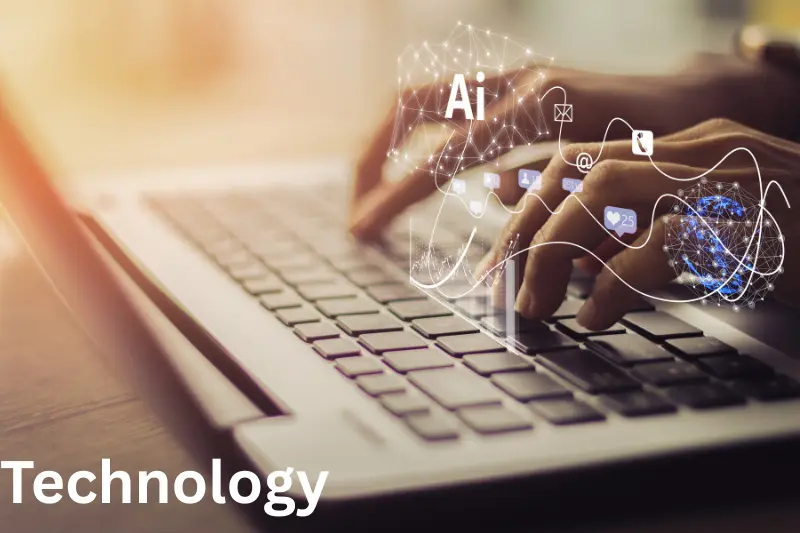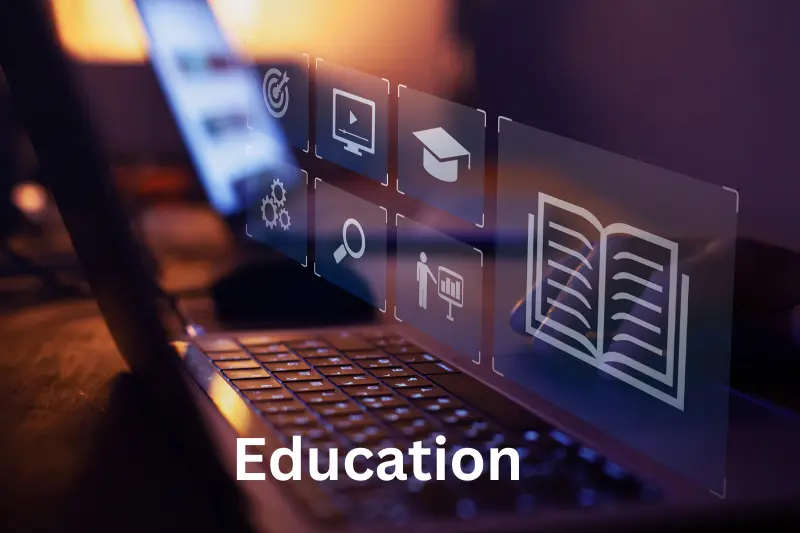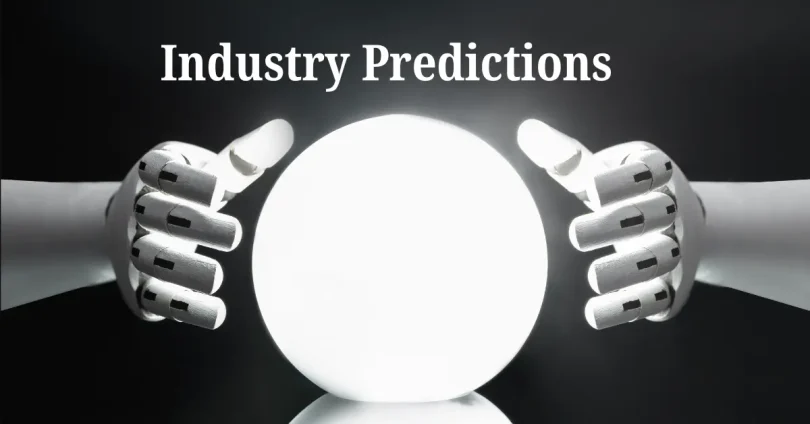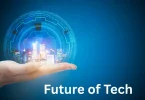The future is never set in stone, but one thing is certain: change is coming, and fast. As we look ahead, every sector from technology and healthcare to finance and retail is facing a tidal wave of transformation. These shifts are not just trends—they’re indicators of how the world is evolving and how businesses and individuals alike must adapt to stay ahead. We’re not merely witnessing changes; we’re actively participating in a global shift that redefines how we live, work, and connect. From automation in everyday life to a reimagining of education, climate action, and smart infrastructure, we are stepping into an age powered by innovation and resilience.
Whether you’re a decision-maker, entrepreneur, investor, or just a curious mind, understanding these industry predictions can give you the clarity and direction you need to navigate the future with confidence and adaptability.
Technology

Artificial Intelligence (AI) and Machine Learning (ML)
- AI is transitioning from buzzword to backbone. It’s being used not just for automation, but for decision-making, content generation, diagnostics, and predictive analysis.
- We can expect a massive rise in AI copilots across work environments, streamlining productivity and enabling hyper-personalized services.
- Machine learning models will become more autonomous, evolving with minimal human input and adjusting based on real-time data.
- AI integration into creative fields like music composition, writing, and design will expand, supporting human creativity rather than replacing it.
Quantum Computing
- Tech giants are racing toward quantum supremacy, aiming to solve problems beyond the capabilities of classical computers.
- Quantum cryptography is predicted to reshape cybersecurity, offering near-impenetrable data protection.
- Industries like logistics, pharmaceuticals, and material science will benefit from advanced simulations and accelerated R&D.
- Quantum cloud computing will emerge, making this power accessible to mid-sized businesses.
Extended Reality (XR)
- AR and VR technologies are blending into everyday operations, from virtual product testing to immersive training simulations.
- The Metaverse will evolve beyond a buzzword, finding real applications in virtual commerce, education, and corporate collaboration.
- Mixed Reality (MR) headsets will become mainstream in design, engineering, and surgical planning.
Healthcare
Personalized Medicine
- With genomics and big data, treatments are shifting from one-size-fits-all to individually tailored plans.
- Predictive analytics will enhance early diagnosis and preventive care, cutting long-term healthcare costs.
- AI-based diagnostic systems will increase accuracy in identifying rare diseases.
Telehealth and Remote Monitoring
- Wearables will evolve into full diagnostic tools, capable of monitoring vitals, hydration levels, glucose, and more.
- Telemedicine platforms will integrate with AI to provide instant symptom analysis and treatment suggestions.
- Virtual hospitals will emerge, enabling round-the-clock digital consultations and AI triage systems.
Biotechnology Breakthroughs
- CRISPR and gene-editing technologies will become mainstream, particularly in treating genetic disorders.
- mRNA technologies, beyond COVID-19, will tackle cancer, HIV, and other chronic illnesses.
- Synthetic biology will help produce new vaccines, biofuels, and biodegradable materials.
Finance
Decentralized Finance (DeFi)
- Blockchain isn’t going anywhere. Expect more transparency, fewer intermediaries, and greater financial inclusion through decentralized apps.
- Traditional banking institutions will start integrating crypto wallets and smart contract-based services.
- Central Bank Digital Currencies (CBDCs) will gain traction globally, redefining monetary policy.
Green Finance
- Investments in ESG (Environmental, Social, and Governance) initiatives will surge, driven by climate awareness and regulatory pressures.
- Carbon credits and green bonds will become integral in company portfolios.
- Financial institutions will prioritize sustainability risk assessment in lending practices.
AI-Powered Risk Assessment
- InsurTech and FinTech firms will use AI to analyze user behavior, reduce fraud, and automate claims processing in real time.
- Behavioral biometrics and voice recognition will strengthen transaction security.
Retail and E-commerce
Hyper-Personalization
- From dynamic pricing to tailored recommendations, AI will drive seamless and personalized shopping experiences.
- Digital avatars and AR mirrors will let users try before they buy—virtually.
- Emotional AI will gauge customer reactions and adapt interfaces in real time.
Omnichannel Integration
- The gap between physical and online stores will vanish. Unified commerce platforms will synchronize inventory, customer data, and marketing.
- Curbside pickups, mobile shopping, and voice-assisted purchases will dominate consumer behavior.
- Smart checkout systems with facial recognition and RFID tech will eliminate lines.
Sustainable Practices
- Brands will shift toward circular economies—recycling, refurbishing, and reusing products.
- Transparency in sourcing and ethical production will be central to brand identity.
- Smart packaging and carbon-neutral deliveries will gain momentum.
Education

Hybrid Learning Models
- Schools and universities will embrace flexible learning modes with asynchronous content, live support, and virtual labs.
- AI tutors and learning analytics will help educators personalize curriculums for every student.
- Virtual reality classrooms will offer hands-on experiences in science, history, and technical training.
Skills Over Degrees
- Certifications in AI, blockchain, cloud, and UX design will gain more value than traditional 4-year degrees in some industries.
- Microlearning and modular courses will keep professionals continuously upskilling.
- Gamification will enhance learning retention and engagement.
Transportation
Electric Vehicles (EVs)
- EV adoption is set to skyrocket as governments enforce bans on internal combustion engines and invest in charging infrastructure.
- Battery tech will evolve to offer longer ranges and faster charging times.
- Wireless EV charging roads and solar-powered vehicles will enter testing phases.
Autonomous Transportation
- Self-driving trucks and delivery drones will become common in logistics.
- Ride-sharing platforms will experiment with autonomous fleets in urban centers.
- AI traffic management systems will reduce congestion and carbon emissions.
Sustainable Travel
- Airlines will invest in sustainable aviation fuel (SAF) and explore hydrogen-powered aircraft.
- High-speed rail networks will expand in densely populated regions as eco-alternatives to flights.
- Eco-passenger loyalty programs will reward sustainable travel choices.
Real Estate and Urban Development
Smart Cities
- Cities will embed IoT sensors in infrastructure for traffic control, pollution tracking, and utility management.
- Digital twins of cities will be used to plan construction, simulate emergencies, and improve public services.
- AI will monitor infrastructure health and predict maintenance needs before breakdowns occur.
Work-from-Anywhere Infrastructure
- Demand for flexible co-working and hybrid offices will redefine commercial real estate.
- Residential projects will integrate smart tech and home office setups as standard features.
- 15-minute city models will encourage walking, biking, and localized amenities.
Energy and Environment
Renewable Energy Expansion
- Solar and wind will continue to dominate, supported by energy storage innovations like solid-state batteries.
- Decentralized energy systems like microgrids will empower communities and reduce outages.
- AI energy forecasting will optimize usage patterns and reduce waste.
Climate Tech
- Carbon capture, air-to-water generators, and algae-based biofuels will scale to tackle climate challenges.
- Smart agriculture using IoT and drones will ensure sustainable food production.
- Climate modeling will help governments prepare and mitigate environmental disasters.
Cybersecurity
Zero Trust Architecture
- Organizations will adopt a never-trust-always-verify mindset to manage complex networks.
- Biometric authentication and behavior-based access controls will replace passwords.
- Security orchestration and automated response (SOAR) tools will reduce breach reaction times.
AI-Driven Security
- Real-time threat detection and incident response using AI will become essential, especially in finance and healthcare.
- Quantum-safe cryptography will prepare systems for post-quantum threats.
- Dark web monitoring tools will be widely adopted to identify leaked data early.
Entertainment and Media
Streaming Evolution
- Subscription fatigue will push platforms to bundle content and add value through gamification and live events.
- Interactive storytelling and choose-your-own-adventure content formats will rise.
- AI voice and face synthesis will revive long-gone artists and create digital twins for performances.
Creator Economy
- Independent creators will monetize via NFTs, tokenized memberships, and direct fan interactions.
- AI-generated content will be used to supplement—not replace—human creativity.
- Decentralized content platforms will give creators more control over monetization and distribution.
Agriculture and Food
Precision Farming
- Drones and IoT sensors will monitor crop health, soil moisture, and pest activity in real time.
- Data-driven farming will optimize yield while conserving resources.
- Vertical farming and aquaponics will be crucial in urban and arid regions.
Alternative Proteins
- Lab-grown meat, plant-based alternatives, and insect protein will become more affordable and accepted globally.
- Fermentation tech will revolutionize food production by reducing environmental impact.
- Personalized nutrition plans will include AI-recommended alternative proteins for health optimization.
Legal and Regulatory
AI Governance
- Laws regulating AI’s ethical use, data privacy, and accountability will take center stage.
- Regulators will require transparent AI decision-making for high-stakes applications.
- International bodies will draft guidelines for AI warfare, misinformation, and election influence.
Global Digital Policies
- Data sovereignty will lead to stricter cross-border data flows.
- Universal standards for cybersecurity, digital ID, and online consumer rights will emerge.
- Taxation of digital services will become a focal point in global economic talks.
Conclusion
No one can see the future with perfect clarity, but with well-informed insights and bold thinking, we can shape it. These industry predictions aren’t just forecasts—they’re roadmaps to the innovations, challenges, and opportunities that lie ahead. As each sector transforms, those who stay informed and flexible will be best positioned to lead the change rather than follow it. Now is the time to think proactively, plan strategically, and embrace a mindset of continuous learning. By doing so, we not only adapt to the future—we help create it.
One read, and you’ll see things differently!
Tech for Good Impact: Real Stories of Positive Change
Powerful interviews with Creators and Founders; Who Inspire
Startups to Watch: The Future of Innovation Awaits
Tech Innovations & Case Studies: Revolutionizing the Future
FAQs
What industries will change the most by 2025?
Technology, healthcare, finance, and education are expected to undergo the most significant transformations due to rapid advancements in AI, remote services, and sustainability efforts.
How will AI impact everyday life?
AI will automate routine tasks, personalize services, enhance healthcare diagnostics, and even assist in creative projects, making life more efficient and connected.
Is remote work here to stay?
Yes, hybrid and remote work models will continue to evolve, supported by smart infrastructure, flexible policies, and increased reliance on virtual collaboration tools.
What role will sustainability play across industries?
Sustainability will be a central focus, driving innovations in energy, transportation, packaging, and finance, with businesses adopting eco-friendly practices to stay competitive and compliant.
How can individuals prepare for future industry shifts?
Stay informed, continuously learn new skills, embrace technology, and be open to adapting your career or lifestyle to align with emerging trends and demands.




